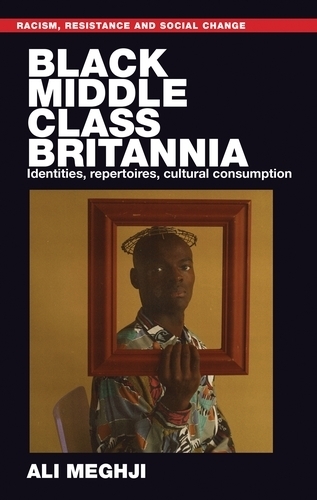
Black Middle-Class Britannia: Identities, Repertoires, Cultural Consumption
(Hardback)
Available Formats
Publishing Details
Black Middle-Class Britannia: Identities, Repertoires, Cultural Consumption
By (Author) Ali Meghji
Manchester University Press
Manchester University Press
4th October 2019
United Kingdom
Classifications
Physical Properties
Hardback
192
Width 156mm, Height 234mm
Description
This book analyses how racism and anti-racism affects Black British middle-class cultural consumption. In doing so, it challenges the dominant understanding of British middle-class identity and culture as being 'beyond race'. Paying attention to the relationship between cultural capital and cultural repertoires, Meghji argues that there are three modes of black middle-class identity: strategic assimilation, ethnoracial autonomous, and class-minded. Individuals within each of these identity modes use specific cultural repertoires to organise their cultural consumption. Those employing strategic assimilation draw on repertoires of code-switching and cultural equity, consuming traditional middle-class culture to maintain equality with the white middle-class in levels of cultural capital. Ethnoracial autonomous individuals draw on repertoires of 'browning' and Afro-centrism, self-selecting traditional middle-class cultural pursuits they decode as 'Eurocentric' while showing a preference for cultural forms that uplift black diasporic histories and cultures. Lastly, class-minded individuals draw on repertoires of post-racialism and de-racialisation, polarising between 'Black' and middle-class cultural forms. Black middle class Britannia examines how such individuals display an unequivocal preference for the latter, lambasting other black people who avoid middle-class culture as being culturally myopic or culturally uncultivated. -- .
Reviews
'A tour de force with original arguments, empirical richness and theoretical ambition, all presented in a beautifully crafted written narrative.'
Les Back is a Professor of Sociology at Goldsmiths, University of London
'Black middle-class Britannia offers a fascinating portrait of race and class in contemporary London. Using the cultural world as a site to examine inequality, Ali Meghji shows how racial and class boundaries are both understood and navigated in varying ways depending on the identities of middle-class blacks. While some see the existence of middle class blacks as evidence that Britain is now color-blind, Black middle-class Britannia provides a timely and in depth counterpoint to this view.'
Patricia A. Banks, Associate Professor of Sociology, Mount Holyoke College
Author Bio
Ali Meghji is a Lecturer in Social Inequalities in the Department of Sociology at the University of Cambridge
